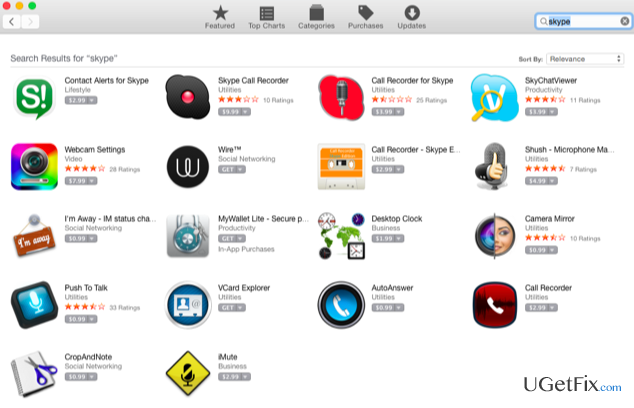
Apple is very strict about the installation of apps on Macs. For example, Mac systems are set to blocks applications from ‘unknown’ or ‘unspecified’ sources by default and this feature certainly helps people to distinguish the questionable/unsafe apps from the reliable ones. The same viewpoint towards applications is expressed on Mac App Store, at least that’s how Apple tries to convince users. Proficient Mac OS users must have noticed how much Apple invested into the security, rules, and regulations on the so-called “Apple’s walled garden.” Therefore, there is no surprise why Mac App Store hasn’t left leading position among the sources for app downloading. However, can all applications on Mac App Store be trusted blindly? Certainly NOT.
In general, the content available on the Internet is not just about good things. If you are everyday computer user, you must have experienced the massive flow of ads due to malware infections, lost some important data due to ransomware infection, slowdowns, crashes or received full-page ads pressingly asking to contact professional technicians as your PC is supposedly having serious problems. In a nutshell, good things are always accompanied by deceptions. Mac App Store is not an exception.
Recently, How-To Geek initiated a research about Mac App Store apps. The conclusion – Apple fails to control App Store, and, even worse, it seems that it does so purposely. It has been found that the Store contains a high number of scam. As an example, the author provides Excel, Word or most popular web browsers like Chrome or Firefox. The results are quite shocking as the search results on Mac App Store provide users with the fake or third-party apps that imitate Microsoft Office design, describes the functionality in a way Microsoft Office provides, and so on. However, the truth is that lots of apps offered at the top of results are either useless, belong to doubtful parties or absolutely fake. Also, when searching for Chrome or Firefox browsers, the number one offer stands to be Fast Browser, which is known for being ad-supported, blamed for browser hijacks, and similar issues. These are just a couple of examples to illustrate the situation. Obviously, Apple fails to protect customer’s rights and exchanges their security into money.
The distribution of scam on Mac App Store can be explained very simply. Apple takes a 30% of every app, so it’s all about money. The owners of well-known and widely used apps are available on official websites, so it’s not a big deal for them not to be included in the list of Mac App Store apps. However, the developers of small and less known apps, including scam, seek to get the license to be distributed on the Store to increase the purchases. That’s because the vast majority of customers go to the Mac App Store for apps without even looking for other sources. Therefore, decent looking scam is not very likely to be removed from the Mac App Store as they allow Apple to gain a good profit.
The problem is real and apparently Apple is receiving accusations of unfairness, legal issues, and security is well-grounded. However, since Apple does not seem to be doing something to remove the scams off and prevent people from being ripped off, you have to be cautious yourself. Always pay attention to the publisher. It’s advisable to download apps that belong to the trusted and well-known companies, such as Microsoft. Besides, read customers’ comments. If negative commentators report the app to be the scam, it’s better to restrain from purchasing it regardless of thefive-starr rating comments boasting the app for its advantages as these comments may be fictitious.



